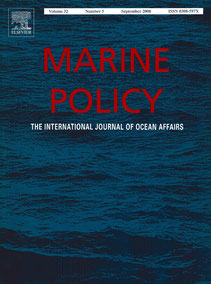Fisheries as social struggle: A reinvigorated social science research agenda
 Authors: Maarten Bavinck, Svein Jentoft, and Joeri Scholtens
Authors: Maarten Bavinck, Svein Jentoft, and Joeri Scholtens
This paper demonstrates that social scientists have responsibilities beyond ensuring fisheries sustainability, which includes more attention to the realm of social struggle and distributional justice. It presents an analytical perspective on social struggle as a key feature in fisheries worldwide and argues that it is intensifying as a result of the following four trends, discussed in detail in the paper: (1) the condition that inshore fisheries have now largely become a zero sum game, with the gains accruing to one person or group automatically resulting in losses to another; (2) the new sets of controls that are occurring in the fish value chain that add to the earlier exploitation of fishers by merchants; (3) the incursion of new business interests into marine and coastal space, which changes the opportunity structure of access to fish resources and markets; and (4) the increasing participation, if not interference, by governments in what used to be mainly fisher affairs.
Social struggle undermines willingness to engage in resource stewardship, and addressing distributional justice concerns may be a precondition for achieving sustainable human-nature relations. Thus, the authors highlight the importance of the study of social struggles in fisheries and call for its inclusion in the social science research agenda. The paper concludes that the study of social struggle needs further attention as it invites a critical examination of the role of government, science institutions in the origin or continuation of social struggles in fisheries, and of fisher movements in achieving societal change.
The paper can be found HERE.















